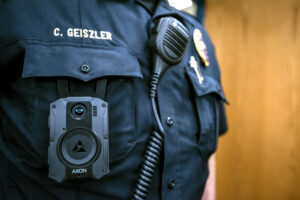
Police officers have been using body worn cameras for a while now. The purpose of these cameras is to provide an accurate and unbiased account of police interactions with the public. This footage can be used as evidence in court and can help protect officers from false accusations. But some privacy concerns come with using these cameras.

Where are body worn cameras used
Body worn cameras are typically used by police officers during their interactions with the public. The footage from these cameras can be used as evidence in court cases or to investigate complaints against officers.
What are the benefits of using body worn cameras?
There are several benefits to using body worn cameras, including:-Protecting officers from false accusations-Providing an accurate and unbiased account of police interactions with the public-Helping to investigate complaints against officers- Serving as evidence in court cases
What are the disadvantages of using body worn cameras?
There are a few potential disadvantages to using body worn cameras, including:-The cost of purchasing and maintaining the cameras-The privacy concerns that arise from recording people in public places-The possibility that footage from body worn cameras could be used to harass or intimidate members of the public
Retail
For those working in retail, body cameras can be used to protect staff and customers. The footage from these cameras can help identify thieves or other criminal activity, as well as provide evidence in court cases and investigations. In addition, the use of body cameras may also deter crime by showing that the store takes security seriously. Body camera footage can also be used to monitor customer service and ensure that staff are providing the best possible experience for customers.
Healthcare
Those working in hospitals, doctor surgeries and other healthcare settings can benefit from body cameras as well. The footage captured by these cameras can help to provide an accurate and unbiased account of interactions between staff and patients, which can be used in court cases or investigations. In addition, the use of body cameras may also deter violence within medical settings, as any criminal activity would be recorded on camera.
Using body worn cameras as a lone worker
When working on your own, body cameras can provide an extra layer of security. The footage from these cameras can be used as evidence in court or to help investigate complaints against lone workers. In addition, the use of body cameras may also deter criminal activity, as any potential perpetrators would know they are being recorded. Finally, body cameras can help protect lone workers from false accusations or harassment.
Video evidence
The recording of video evidence can help to ensure that the truth is revealed in court or investigations. Body worn cameras can capture footage of interactions between those on the frontline and their customers. This footage can be used to accurately identify suspects or verify statements, ensuring a fair outcome for all involved. Furthermore, body cameras can provide an accurate record of events which cannot be manipulated or altered.
In conclusion, body worn cameras are an effective tool for capturing video evidence and providing protection for those working in potentially dangerous or challenging environments. The footage captured by these cameras can be used as evidence in court cases and investigations, as well as provide an unbiased account of interactions between staff and customers/patients. Furthermore, the use of body cameras may also deter criminal activity, providing an extra layer of security. Finally, body cameras can help protect frontline workers from false accusations or harassment.
Author Profile
- I am the owner of the blog readree.com. My love for technology began at a young age, and I have been exploring every nook and cranny of it for the past eight years. In that time, I have learned an immense amount about the internet world, technology, Smartphones, Computers, Funny Tricks, and how to use the internet to solve common problems faced by people in their day-to-day lives. Through this blog, I aim to share all that I have learned with my readers so that they can benefit from it too. Connect with me : Sabinbaniya2002@gmail.com
Latest entries
 How ToJuly 8, 2025How a Virtual Number in Switzerland Can Transform Your Communication Experience
How ToJuly 8, 2025How a Virtual Number in Switzerland Can Transform Your Communication Experience ArticleJuly 7, 2025What Makes a Great Sales Enablement Tool in 2025? 5 Must-Have Features to Look For
ArticleJuly 7, 2025What Makes a Great Sales Enablement Tool in 2025? 5 Must-Have Features to Look For Digital MarketingJuly 5, 2025How to Choose the Right Plugins for Your Creative Agency
Digital MarketingJuly 5, 2025How to Choose the Right Plugins for Your Creative Agency Digital MarketingJuly 4, 2025How to Choose an SEO Agency: 7 Tips & Tricks
Digital MarketingJuly 4, 2025How to Choose an SEO Agency: 7 Tips & Tricks